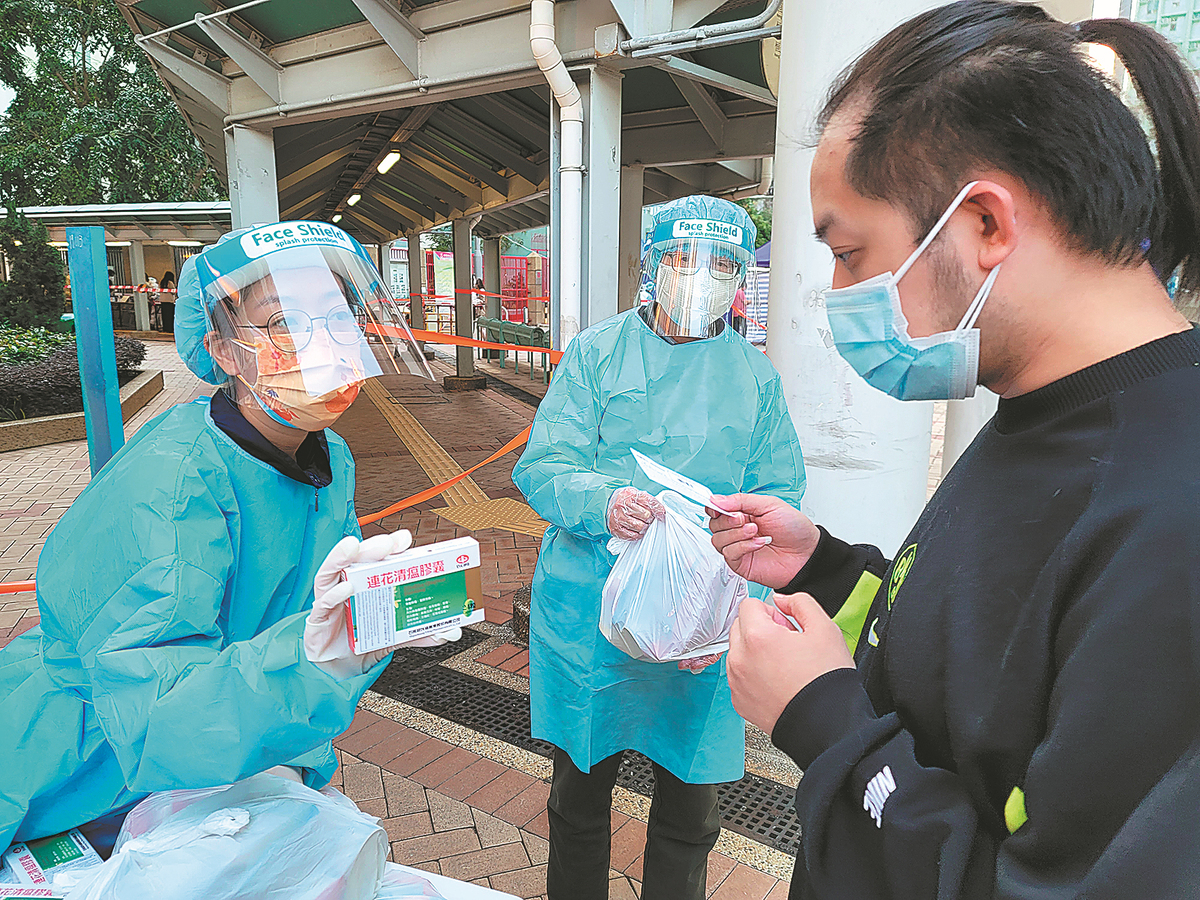Guangdong unites in lending a much-needed helping hand


Customs departments in Guangdong have simplified procedures and shortened clearance time to ensure there is no delay for goods and related materials being sent to the city.
The customs authorities in Guangzhou, the provincial capital, said in a statement they have set up a special task force to help local companies handle procedures to ensure the smooth and rapid clearance of materials supplied to Hong Kong.
In Foshan, a batch of more than 1.5 million face masks in four standard containers and 250,000 antigen detection reagents have been sent to Hong Kong on ships loaded at the city's Beijiao and Rongqi ports this month.
Deng Weiqi, chairman of Foshan Nanhai Plus Medical, said, "With the support and guidance of customs departments, it took only half a day to transport these masks from the factory to the port, allowing us to arrange the shipment more flexibly."
Guangdong, the major supplier of meat, vegetables and related agricultural produce to Hong Kong, has opened numerous channels to ensure smooth transportation and guarantee adequate supplies of medical materials and other daily necessities.
In addition to traditional land routes, on which a large number of trucks operate between Shenzhen and Hong Kong, a special rail service and water routes have been opened to help improve transportation capacity to ensure adequate materials are supplied to Hong Kong.
On Wednesday, a special freight train carrying 18 containers left Shenzhen for Hong Kong to help stabilize the supply of goods from the mainland to the city, China Railway Guangzhou Group said.
The province has also opened six special water routes to Hong Kong, according to the Guangdong Provincial Department of Commerce.
In Shenzhen, ships now head to Hong Kong from Yantian Port every day, playing a key role in supporting the stricken city's fight against COVID-19, according to Dong Yanze, an official with Shenzhen's transportation bureau.
"Water routes, which have the advantages of safety, environmental protection and strong capacity, have become a main force for cross-border transportation, playing a big part in supplying anti-COVID-19 and livelihood materials to Hong Kong," Dong said.
Statistics from the Guangdong Department of Transport show that anti-COVID-19 and livelihood materials shipped to Hong Kong via water now comprise some 90 percent of the total.
- Team formed to investigate the loss of 29 cultural relics
- Investigation into school uniforms confirms safety of waterproof layer
- Taiwan students join winter sports exchange in Tianjin
- World's largest vertical shaft boring machine deployed for cross-river railway tunnel
- Former chairman of State-owned enterprise sentenced to death with two-year reprieve
- Sichuan's ecological restoration attracts record number of migratory birds





































